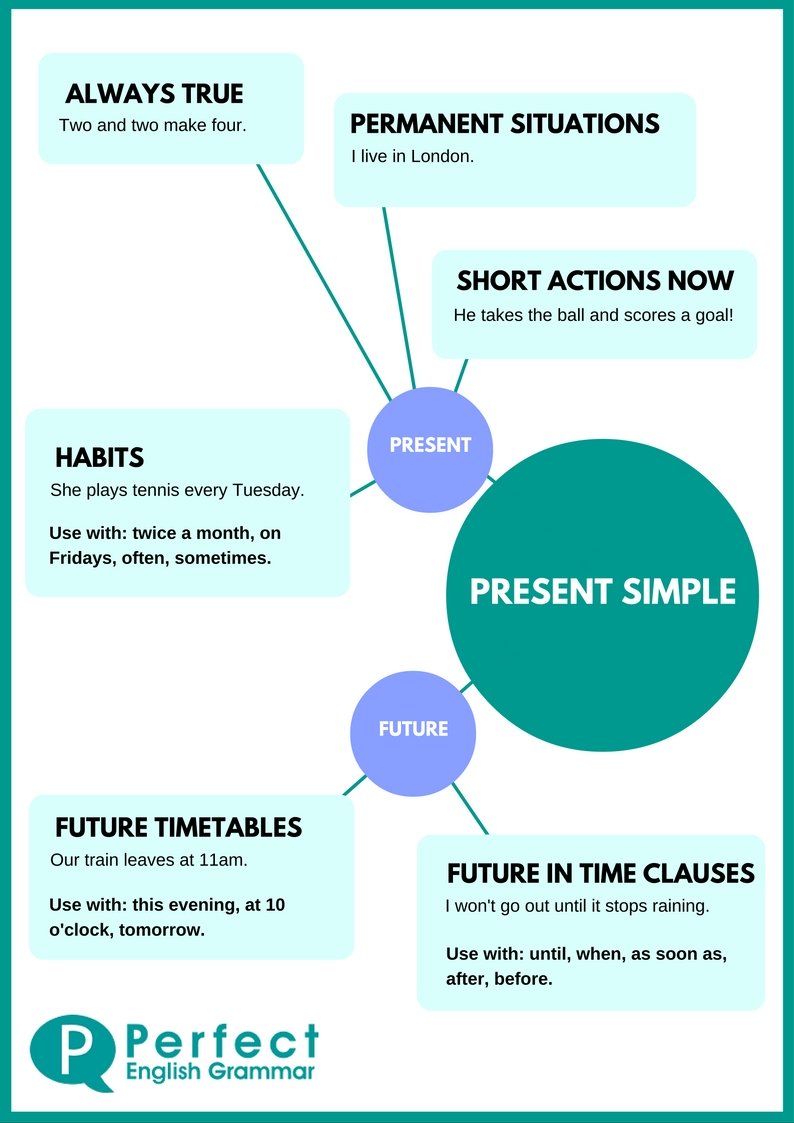The simple past expresses an action in the past taking place once, never, several times. It can also be used for actions taking place one after another or in the middle of another action.
Form of Simple Past
| Positive | Negative | Question | |
|---|---|---|---|
| no differences | I spoke. | I did not speak. | Did I speak? |
For irregular verbs, use the past form (see list of irregular verbs, 2nd column). For regular verbs, just add“ed”.
Exceptions in Spelling when Adding ‘ed’
| Exceptions in spelling when adding ed | Example |
|---|---|
| after a final e only add d | love – loved |
| final consonant after a short, stressed vowel or l as final consonant after a vowel is doubled | admit – admitted travel – travelled |
| final y after a consonant becomes i | hurry – hurried |
Use of Simple Past
- action in the past taking place once, never or several timesExample: He visited his parents every weekend.
- actions in the past taking place one after the otherExample: He came in, took off his coat and sat down.
- action in the past taking place in the middle of another actionExample: When I was having breakfast, the phone suddenly rang.
- if sentences type II (If I talked, …)Example: If I had a lot of money, I would share it with you.
Signal Words of Simple Past
- yesterday, 2 minutes ago, in 1990, the other day, last Friday
- If-Satz Typ II (If I talked, …)
Exercises on Simple Past
- Was or Were?
- Positive Sentences in Simple Past
- Answer Questions in Simple Past
- Negative Sentences in Simple Past
- Questions in Simple Past
- Questions with Interrogatives in Simple Past
- Mixed Exercise in Simple Past
- Pool of exercises
- Goldilocks and the three bears: Part 1, Part 2, Part 3
- Exercise on the text “Chicago”
- Exercise on the text “Oxford”
- Irregular Verbs
Tests
Grammar in Texts
- “The Canterville Ghost” (highlight verbs in simple past)
- “History of Snowboarding” (highlight verbs in simple past)

Comparison with other Tenses
- Simple Past – Past Progressive
- Simple Past – Present Perfect Simple
- Simple Past – Past Perfect Simple
taken from https://www.ego4u.com/en/cram-up/grammar/simple-past









